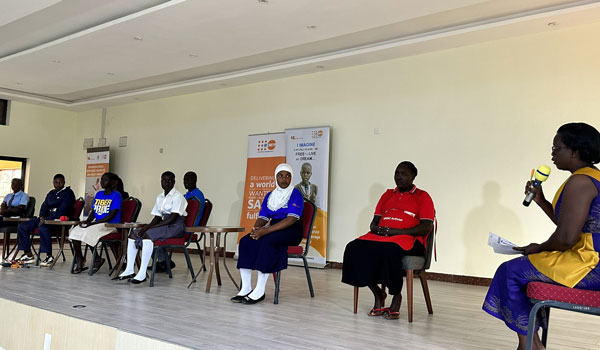
Gulu, Uganda | THE INDEPENDENT | The United Nations Population Fund (UNFPA) has committed to continue its support towards Uganda’s Sexual and Reproductive Health and Rights (SRHR) for women, and girls including disadvantaged and vulnerable populations. UNFPA, with funding from the Netherlands Embassy, has been implementing a four-year program dubbed Advancing Sexual Reproductive Health and Rights (ANSWER) with the main aim of contributing to the achievement of universal access to SRHR.
The 25 million Euros project (approximately 100 billion Shillings) was being implemented in the 14 districts of the West Nile and Acholi Sub-region benefiting both the host and South Sudan refugee population. With the program now coming to an end, Daniel Alemu, the UNFPA Deputy Representative says the West Nile and Acholi Sub-regions remain an area of focus for UNFPA and will continue receiving support.
This he says is due to the high number of teenage pregnancy cases registered as highlighted in the country’s demographic and health survey report 2022. Alemu was speaking at the close-out meeting of the four-year ANSWER project in Gulu City on Tuesday, where several governmental and non-governmental partners converged to review the success of the project.
He says the project registered a number of key successes citing the ability to hold engagements with cultural leaders in addressing challenges young people face especially early child marriages, teen pregnancies, and female genital mutilation in the region.
At least 429 teen mothers throughout the project implementation were able to return to school and a significant reduction of school absenteeism due to menstrual Health monitoring interventions was reduced according to UNFPA officials.
Joost Van Ettro, Deputy Head of Mission at the Netherlands Embassy however says while the project comes to an end with key achievements in strengthening the health system in the region, attention to curbing teenage pregnancy needs to be heightened. Ettro says there is a need to have honest discussions about sex, though it’s a sensitive subject in the country and particularly this region in a bid to find out why the vice is persisting so that it’s addressed.
As @UNFPAUganda with support from our donors like the @NLinUganda, we pledge our continued support to West Nile & Acholi sub regions in advancing #SRHR of the young people, women, refugees & people with disabilities ~ @dan_alemu Deputy Rep, @UNFPAUganda. pic.twitter.com/W0sFORRxmd
— UNFPA Uganda (@UNFPAUganda) September 26, 2023
UNFPA report on teenage pregnancy in 2021 indicates that West Nile was among the top six regions that registered the highest numbers of teenage pregnancies, with the most affected districts being Arua (4,705 cases) and Yumbe (3,973 cases). Dr. Charles Olaro, the Director of Curative Services at the Ministry of Health acknowledges that indicators still reveal the area of teenage pregnancies hasn’t been doing well but noted that the government along with partners is working to address it. Dr. Olaro says approximately 600,000 teenage pregnancy cases are registered across the country annually and notes that the girls are unable to achieve their full potential in life.
Beneficiaries of the ANSWER project have however lauded the initiative for helping to strengthen their confidence in tackling sexual and reproductive health issues. Beatrice Dorah Ajok, 18, a student at Lwani Memorial College in Amuru district says she joined the program under ANSWER in 2022. She says through the mentorship program, she has been able to learn how to speak with confidence about sexual reproductive issues, make her own sanitary pads, and give advice to her fellow peers.
Sharon Akumu, another student from Pabbo Senior Secondary School also in Amuru district says the mentorship program has helped her to avoid peer pressure of engaging in sex and motivated her to consider education first.
According to UNFPA, the ANSWER project by the end of 2022 had reached out to about 1.5 million populations in the Acholi and West Nile region with information on sexual and reproductive health rights and benefited some 959,000 people in 210 supported facilities.
****
URN
 The Independent Uganda: You get the Truth we Pay the Price
The Independent Uganda: You get the Truth we Pay the Price



